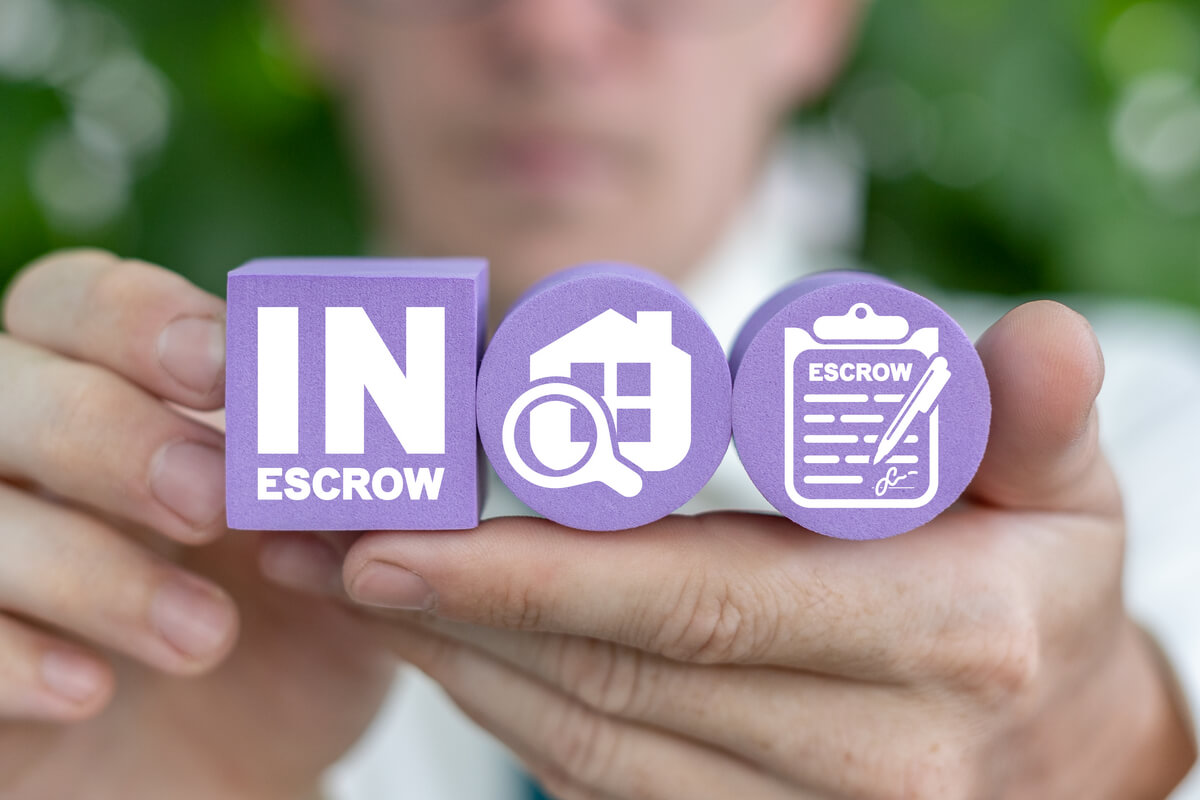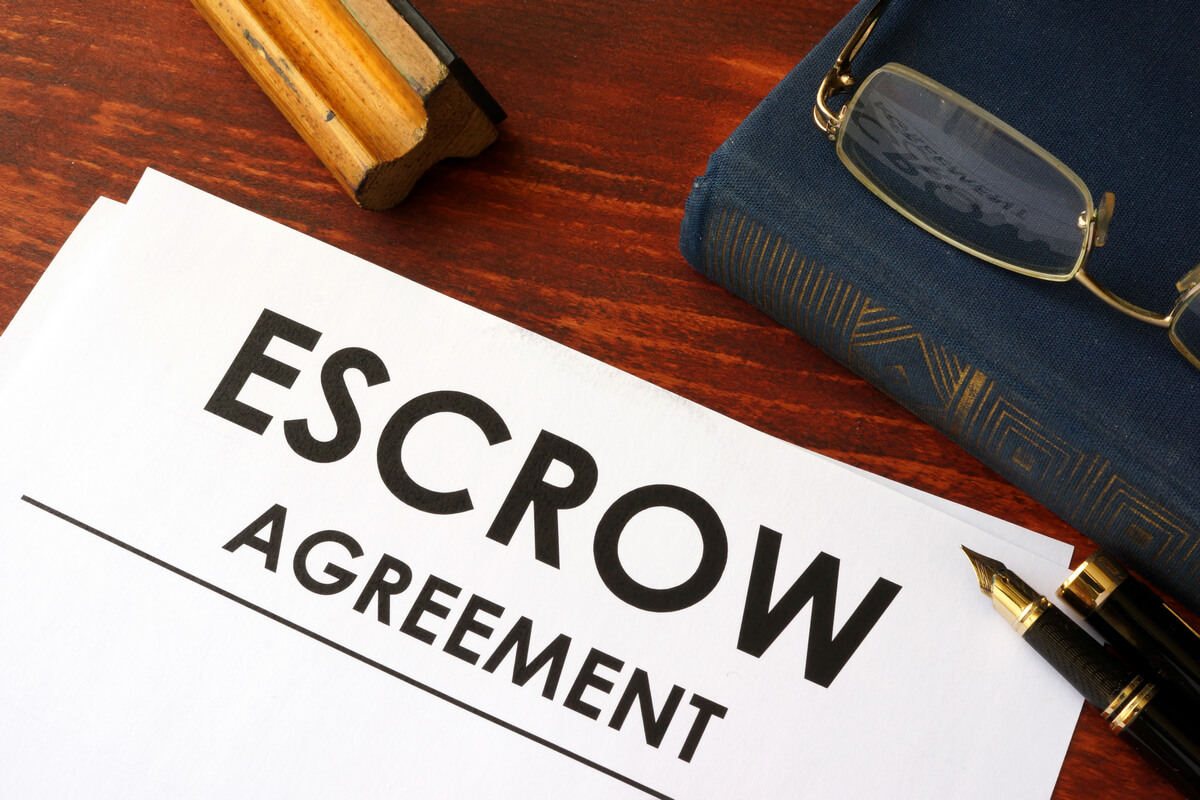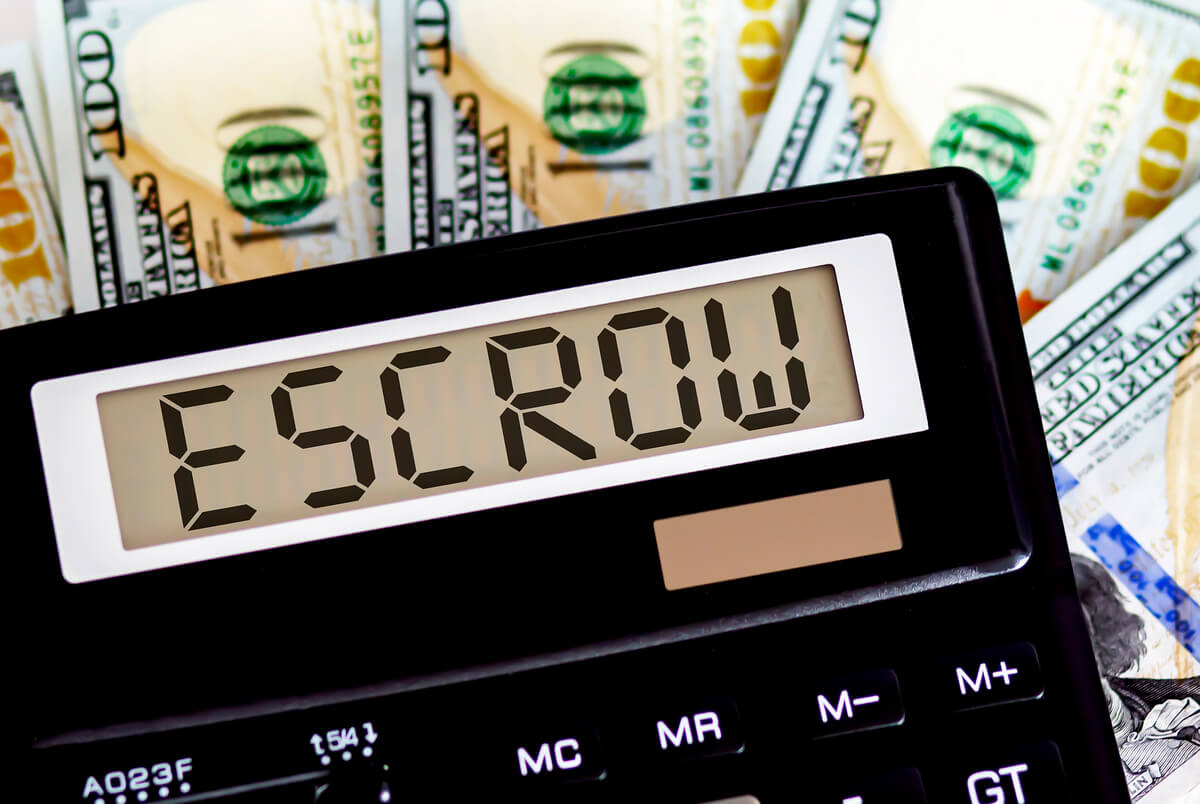If you’re planning to buy or sell a home soon, it’s important that you understand every step in the process. One key component of the transaction is escrow, which is a system of holding money with a neutral third party. Escrow plays a role in almost every real estate transaction, and it can be a great way to simplify finances for both buyers and sellers.
There are two distinct types of escrow for homeowners: escrow for home purchases and escrow accounts for homeowners to pay recurring expenses. You should know how both of these processes work so that you can be as informed as possible on your journey to becoming a homeowner.

What Is Escrow for Home Purchases?
An escrow is a deposit or fund that’s kept in the custody of a neutral third party until a financial transaction is complete. In the home buying process, escrow agents act as mediators in the sale of the property. Your title company will most likely act as your escrow agent during the home sale, but you could also work with a law firm or a dedicated escrow company to set up the account.
If you’re selling your home, accepting an offer is one of the first steps in the process. After selecting a buyer, both parties have a number of tasks to complete to negotiate on the deal and get the home ready. Unfortunately, plenty of things can go wrong between accepting the offer and closing on the sale. Your escrow agent holds a sum of money from the buyer while both parties wait for the deal to be finalized. Once everything is in the clear, the agent releases the funds. If the sale falls through, the agent returns the money to the buyer.
Escrow helps to ensure that both the buyer and the seller meet their requirements for the deal. For example, the seller might agree to make certain repairs to the home before the closing date. If they don’t follow through, the buyer can delay the closing. Because the escrow agent is a neutral mediator, they won’t give the seller the funds in the account until the seller makes the repairs. However, the seller can also trust that the buyer is serious about the sale because they’ve given earnest money to the escrow agent.

How the Escrow Process Works
Setting up an escrow account is one of the first steps that should be taken after the seller accepts the buyer’s offer. The buyer and seller should both agree on an escrow holder, but it’s usually the buyer’s responsibility to hire an agent.
The buyer and seller agree upon an amount that the buyer will deposit into the account as earnest money. This usually amounts to 1% to 2% of the home’s value, but it can vary depending on the current market conditions and the specifics of your offer. The escrow agent holds onto these funds until the sale is official, which usually takes 30 to 60 days.
When the escrow holder releases the earnest money in the account, the funds can go toward closing costs or the down payment. The escrow company will charge a service fee, though, so the buyer should be prepared to pay some extra money into the account.

Is Escrow Required?
Escrow isn’t required by law during a home sale, but it is the most common practice. If you’re hoping to buy a home, you should be prepared to pay earnest money into an escrow account shortly after making an offer. This shows the seller that you’re committed to the purchase, so it can dramatically increase your chances of your offer being accepted.

What Is an Escrow Account?
An escrow account for homeowners is separate from the escrow involved with a real estate transaction. After you purchase a home, you can set up an escrow account with your mortgage lender to pay your property taxes, homeowners insurance, or other expenses associated with homeownership.
Most of these payments are charged in lump sums once per year or once per quarter. To keep your finances more consistent, your lender can estimate the yearly total for these expenses and divide them into 12 equal monthly payments. Then, they add this amount to your monthly mortgage payment.
Now, your monthly payment to your lender covers your mortgage payment, your taxes, and your insurance. Your payments toward your taxes and insurance go into your escrow account until the bill is due. At this point, your lender makes the lump sum payment for you.

Advantages of Using an Escrow Account
Escrow accounts provide a number of advantages for homeowners. The biggest benefit is that they make your monthly finances much more consistent. Your housing costs will stay roughly the same every month instead of drastically fluctuating whenever your insurance or property taxes are due.
Using an escrow account also helps you avoid missing payments, which can be especially tricky with bills that are only due once per year. If you miss your due date, you may accrue late fees or face other penalties. When you set up an escrow account with your lender, though, you can trust that they’ll make the payment on time.
While escrow isn’t required by law, most banks do require borrowers to set up an escrow account and pay a certain amount up-front when purchasing a home. By depositing a sum of money into your escrow account after your purchase, you ensure that you have enough in the account to cover your bills when they’re due. In some states, lenders are required to pay interest on escrow accounts, so you can even get some of your money back over time.
When buying a home, an escrow account acts as a neutral space to hold some of the buyer’s down payment, which binds both the buyer and seller to their agreement. After you buy a home, your escrow account with your lender is used to pay your property taxes, insurance, or certain other fees. Both forms of escrow play an important role in the transactions associated with homeownership.

